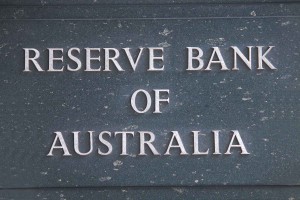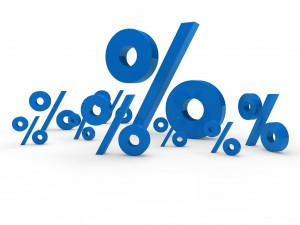With the Australian Prudential Regulation Authority (APRA) clamping down on interest-only loans, experts and economists think interest-only borrowers may have a hard time refinancing to principal and interest loans, according to finder.com.au.
All 33 experts and economists in the monthly finder.com.au RBA survey, which is the largest of its kind in Australia, are expecting the cash rate to hold at 1.5% at tomorrow’s (06/06/2017) board meeting. 
When asked about future cash rate movements (regardless of when it will happen), the majority (80%, 24 of 30) of panellists think the next move will be a rise.
Of the minority who are expecting a cash rate fall, most of this group believe the rate will dip no lower than 1.00%.
However, Stephen Koukoulas of Market Economics and Jordan Eliseo of ABC Bullion believe the rate will fall even lower to 0.75% and 0.50% respectively.
The majority of experts and economists (74%) expect the next rise to come in 2018.
However, some are indicating that a rise may be due sooner with four respondents anticipating a rise between October and December this year.
As APRA is aiming to keep all new interest-only loans below 30% of total new residential mortgages, most panellists (57%) surveyed on this topic believe borrowers switching from interest-only to principal and interest, or those whose fixed interest-only terms are nearing expiring, may have a hard time refinancing.
Graham Cooke, Insights Analyst, at finder.com.au, says with potential rate rises in store, interest-only borrowers may be hit the hardest.
“Borrowers shifting from an interest-only loan to a principal and interest loan may be struck with a higher repayment initially, and they may find it difficult to service the principal portion, but ultimately it’s important to pay down the principal of the loan.
“With the next rate move likely to be in a positive direction, and with many lenders already lifting product rates, interest-only mortgage holders will be the most directly affected,” he says.
For example, for a $800,000 interest-only loan with 4% interest, repayments will be $2,667 versus $3,819 for those borrowers also paying down the principal.
However, increasing the interest rate from 4% to 6% would up the interest-only loan repayments by $1,333 per month, yet the principal and interest repayments would rise by only $997.
“To shield yourself from rate rises, look at your budget and find ways to free up your cash flow so you can cope with higher repayments. For instance, you may decide to consolidate personal debt to save on account fees or ongoing interest charges,” he says.
Regarding Standard & Poor (S&P)’s recent downgrading of 23 Australian financial institutions, most panellists (15, 63%) thought S&P’s perception of the increased risk of a sharp fall in property prices was not justified. However, nine (37%) disagreed.
“We’re looking at a higher-interest future. So it’s time to start planning for higher interest rates,” Mr Cooke says.
“Interest-only investors are reliant on prices continuously going up, but we’re starting to see prices either slow or fall in some cities across the country, so ensure you have a 2-3% buffer to cushion yourself against any future rate rises.”
Here’s what our experts had to say:
Michael Yardney, Metropole Property Strategists (Hold): “Our economy is stumbling along so until job numbers improve it would be safe to assume the RBA won’t be hiking interest rates to slow the property markets down. On the other hand they can’t afford to drop rates and fuel our property markets. So rates will remain on hold.”
Jordan Eliseo, ABC Bullion (Hold): “There is no compelling case to move rates in either direction at this stage. Despite generally soft economic data (today’s retail sales notwithstanding), we expect the RBA will wait to see further evidence that the Australian property market is indeed cooling, before cutting rates in the second half of this year.” 
Shane Oliver, AMP Capital (Hold): “Not enough has changed since the last meeting when the RBA actually revised up slightly its growth outlook.”
John Hewson, ANU (Hold): “Insufficient info so monitoring data.”
Alison Booth, Australian National University (Hold): “The fundamentals are little changed.”
Darryl Gobbett, Baillieu Holst (Hold): “The RBA will still be concerned about systemic stability being possibly adversely impacted by increased debt if rates were cut while likely seeing little benefit to increased growth. Uncertainty about impacts of a rate rise with the current economic, property and political uncertainties put well off the possibility of a rate rise.”
Peter Munckton, Bank of Queensland (Hold): “The economy is improving, and the RBA would prefer not to reduce rates.”
Dr Kishti Sen, BIS Oxford Economics (Hold): “The Reserve Bank won’t cut rates because it won’t improve business investment. Business investment remains weak despite historically low financing rates. In addition, recent increases in the residential property market have been too high. They won’t raise rates as underlying inflation is expected to remain close to 2% over the next two years.”
Paul Dales, Capital Economics (Hold): “The RBA is willing to put up with underlying inflation being below its 2-3% target range as long as the unemployment rate remains below 6% and as long as it is still worried about the strong housing market and high level of household debt. In other words, lower interest rates may just exacerbate the housing issue.”
Michael Blythe , CBA (Hold): “House price concerns vs low inflation.” 
Savanth Sebastian, CommSec (Hold): “RBA comfortable about the medium term outlook for Australia. Is likely to keep a close eye on how household consumption evolves over the rest of this year.”
Dr Andrew Wilson, Domain Group (Hold): “Although case growing for a cut in rates Bank still more likely to continue with optimistic steady settings – but decision should be closer than recent as ANOTHER negative quarter of GDP looms.”
Scott Morgan, Greater Bank (Hold): “Current data indicates that there will not be a change.”
Mark Brimble, Griffith University (Hold): “The outlook is weak for the next 12-24 months and thus the bias is for the economy needing more support. The financial institutions have not helped by pushing rates up, however this has assisted with APRA’s desire to reduce property and credit risks. All in all, the RBA is likely to sit on its hands again.”
Shane Garrett, Housing Industry Association (Hold): “Inflation is at comfortable rate, growth does not require further support at this time. The foreign exchange rate is balanced.”
Paul Bloxham, HSBC (Hold): “Because underlying inflation is past its trough.”
Alex Joiner, IFM Investors (Hold): “There is no justification for a rate move. If anything economic performance and risks still suggest there should be an easing bias and property markets/debt accumulation suggest a tightening one. The former argument remains stronger in my view.” 
Michael Witts, ING Bank (Hold): “The RBA would be happy with the current state of the economy and will await until the release of Q1 GDP data before considering interest rate changes.”
Leanne Pilkington, Laing+Simmons (Hold): “The latest data suggests subdued house price easing is occurring in major markets, there are conflicting opinions on the near-term growth prospects of the economy, the crackdown on interest-only loans seems to have caused investors to back off, and the threat of the major banks adjusting rates to counter the bank levy cannot be entirely discounted. A steady cash rate is the constant among this broader uncertainty.”
Nicholas Gruen, Lateral Economics (Hold): “Because the economic is flat and, though it would like to increase rates, the economy remains sluggish.”
Matthew Tiller, LJ Hooker (Hold): “No material change in economic environment since RBA last met.”
Stephen Koukoulas, Market Economics (Hold): “RBA continues to place far too much weight on Sydney and Melbourne housing markets and not enough on the rest of the economy which is crying out for lower interest rates.”
John Caelli, ME (Hold): “The RBA won’t cut rates because it remains concerned about fuelling further increases in house prices and household debt.” 
Mark Crosby, Monash University (Hold): “While there are some indicators of softening inflation and weakness in the economy, including slowing house price growth there is no case for a rate cut. Given this weakness and a softer US inflation outlook reducing the probability of an imminent Fed rate increase, there is also little case for raising rates.”
Christopher Schade, MyState Bank (Hold): “The hurdle for another cut is high. While inflation remains subdued and the outlook for economic growth over the next year couple of years is slightly below trend, interest rate settings in Australia are very accommodative and remain appropriate at their current level. The RBA appears particularly reluctant to deliver further cuts given heightened financial risks on the back of high household debt levels.”
Saul Eslake, Economist (Hold): “Nothing has happened since the last meeting that is likely to have materially altered the RBA’s view of the outlook for inflation, economic growth or unemployment from that set out in the May Statement on Monetary Policy, and hence nothing will have altered their view that current monetary policy settings are appropriate.”
Alan Oster, Nab (Hold): “RBA still weighing rates v house prices. Too early to tell”
Jonathan Chancellor, Property Observer (Hold): “They are low enough for the bank to continue to watch as is.”
Noel Whittaker, QUT (Hold): “No reason to move either way.” 
Nerida Conisbee, REA (Hold): “The RBA still likely to be concerned about economic growth and particularly underemployment and low inflation. Unwilling to cut due to the state of housing. RBA will be cautious not to accelerate. For home buyers the RBA’s decision doesn’t really matter as banks will increase rates anyway driven by APRA and potential banking tax.”
Christine Williams, Smarter Property Investing (Hold): “Retail spending over this month will increase due to retail sales and EOFY, which in turn will increase the nation’s credit card debt. This will portray a false positive outlook from an economic point of view.”
Janu Chan, St.George Bank (Hold): “RBA unlikely to have altered its on hold stance over the past month. Housing indicators suggest cooling conditions but its concerns over risks associated with housing and household debt will remain. Employment was the other development the rba is watching closely. On this front the fall in the unemployment rate would have been encouraging.”
Steven Milch, Suncorp (Hold): “Mixed economic signals don’t adequately make the case to cut or hike at this stage.”
from Property UpdateProperty Update http://propertyupdate.com.au/apras-clampdown-could-spell-trouble-for-interest-only-borrowers/


No comments:
Post a Comment